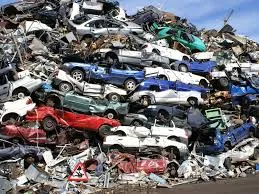

Aza . 05, 2024 08:40 Back to list
How Do You Dispose of Electronics? A Comprehensive Guide
In our fast-paced, tech-driven world, the rapid evolution of electronic devices is both thrilling and overwhelming. With every upgrade, older devices become obsolete, cluttering our homes and offices. However, the disposal of electronics is a serious concern that extends beyond mere convenience. Improper disposal can lead to environmental harm and health risks due to the toxic materials found in many electronic products. In this guide, we’ll explore the best practices for disposing of electronics responsibly and sustainably.
Understanding E-Waste
E-waste, or electronic waste, refers to discarded electrical or electronic devices. This category includes smartphones, computers, televisions, and kitchen appliances, among others. The United Nations estimates that we generate around 50 million tons of e-waste each year, making it one of the fastest-growing waste streams globally. Many electronic devices contain hazardous materials such as lead, mercury, and cadmium, which can leach into the environment and contaminate soil and water if not disposed of correctly.
Why Responsible Disposal Matters
Responsible disposal of electronics is essential for several reasons
1. Environmental Protection Many components of electronic devices can be recycled and repurposed, reducing the demand for new raw materials. This helps decrease energy consumption and greenhouse gas emissions. 2. Health Safety Improperly disposed e-waste can release toxic substances into the environment, posing health risks to communities, especially in developing regions where e-waste is often dumped.
3. Data Security Old devices, especially computers and smartphones, often store sensitive information. Proper disposal ensures that your data does not fall into the wrong hands.
How to Dispose of Electronics Properly

1. Evaluate and Repair Before disposing of your electronics, consider whether they can be repaired or upgraded. Many devices can have their functionalities restored, extending their life and reducing waste.
2. Donation If an electronic device is still functional, consider donating it to local charities, schools, or community centers. Many organizations welcome donations of working electronics, helping those in need and reducing waste simultaneously.
3. Recycling Programs Many retailers and manufacturers offer recycling programs for electronics. Stores like Best Buy and Staples have designated drop-off centers where you can recycle old gadgets for free or at a minimal cost. Some cities also have e-waste recycling events or specialized facilities that accept various electronic items.
4. Certified E-Waste Recyclers When choosing a recycling facility, look for those certified by recognized organizations such as the e-Stewards or the Responsible Recycling (R2) certification. These certifications ensure that recyclers adhere to strict environmental and safety standards.
5. Manufacturer Take-Back Programs Many manufacturers offer take-back programs where they will accept their products back for recycling. Check the websites of your electronic device manufacturers for information on available options.
6. Secure Data Wiping Before parting with any electronics, ensure that your data is securely erased. Use software tools designed for data destruction to wipe your hard drives, smartphones, and tablets of all personal information. In some cases, physically destroying the storage component might be necessary for sensitive data.
7. Retailer Returns Some retailers have policies that allow customers to return old electronics when they purchase new ones. Check your local store's policy, as this can be a convenient way to ensure responsible disposal.
Conclusion
As technology continues to advance, the importance of proper electronics disposal cannot be overstressed. By following these guidelines, individuals can play a vital role in reducing e-waste, protecting the environment, and ensuring that their data remains secure. The next time you upgrade your device, take the time to consider its end-of-life journey. Choose responsible disposal methods, and contribute to a healthier planet for future generations. Remember, sustainability starts with each one of us.
Latest news
Troubleshooting Common Eddy Separator Problems
NewsJul.04,2025
The Role of Metal Recycling Plants in Circular Economy
NewsJul.04,2025
The Impact of Recycling Line Pickers on Waste Management Costs
NewsJul.04,2025
Safety Features Every Metal Shredder Should Have
NewsJul.04,2025
How Industrial Shredders Improve Waste Management Systems
NewsJul.04,2025
How Cable Granulators Contribute to Sustainable Recycling
NewsJul.04,2025